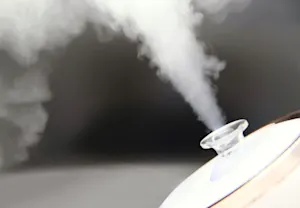What Makes This Word Tick
"Histrionics" is a word that packs a dramatic punch, often used to describe exaggerated emotional behavior designed to attract attention. Imagine an over-the-top performance that seems straight out of Shakespeare but happens in everyday life. It's like a verbal spotlight on someone who has turned the dial on emotional display up to eleven!
If Histrionics Were a Person…
If histrionics were a person, they'd probably have a flair for the theatrical, showing up everywhere with a flourish, draped in brightly colored garments and ready to make a scene. Picture someone with a personality too big for everyday situations—reciting soliloquies in a grocery line or breaking into song at the drop of a hat.
How This Word Has Changed Over Time
Originally, "histrionic" was strictly associated with stage performances and actors. Over time, it strolled off the stage and sauntered into everyday life, describing anyone who adopts an actor’s antics without the paycheck. It's one of those words that has broadened its horizon from theaters to therapy sessions.
Old Sayings and Proverbs That Use Histrionics
While there may not be ancient proverbs explicitly saying "histrionics," the sentiment is age-old, like the saying, "All the world’s a stage," suggesting that life itself can be a performance. Those prone to histrionics might just be the star players in their own dramatic productions.
Surprising Facts About Histrionics
A lesser-known fact about histrionics is its connection to psychology. Histrionic personality disorder is a clinical term referring to individuals needing excessive attention, often using dramatics as their method. The leap from layman's vernacular to a psychological descriptor is one not all words make.
Out and About With This Word
You might encounter "histrionics" being playfully used in offices or homes, usually tempered with a knowing smile. It can gently remind someone that their Oscar-worthy display might not be entirely warranted outside of a theater.
Pop Culture Moments Where Histrionics Was Used
You might recognize histrionics in the antics of reality TV stars, whose arguments and reactions seem performer-like. Think about those moments on "The Real Housewives" when drama seems to spill over perfectly crafted settings—now that's histrionics in prime time!
The Word in Literature
In literature, "histrionics" might pop up in character descriptions, particularly for those larger-than-life figures destined to leap off the page. Authors like Charles Dickens or Oscar Wilde might find good company in using this term to flesh out some of their more colorful creations.
Moments in History with Histrionics
While Marie Antoinette never said "Let them eat cake," her reputed flamboyance is a historical match with the spirit of histrionics. Public figures throughout history, known for their extravagant expressions—like Cleopatra or Napoleon—might have encountered the term had it been in their lexicon.
This Word Around the World
While "histrionics" maintains a primarily Western usage, its essence crosses cultural borders. Every culture has its version of the drama queen, often celebrated through gestures, dance, and stories that showcase the human penchant for expressing emotion to its fullest.
Where Does It Come From?
Deriving from the Latin "histrionicus," which meant pertaining to an actor or acting, the word finds its roots in the ancient dramas of Rome. It was a nod to the art of performance, long before it referenced your neighbor's flair for the dramatic.
How People Misuse This Word
Sometimes, people mistakenly use "histrionics" to describe any emotional outburst, but true histrionics necessitates a certain artfulness—it's not just loud; it's calculated. It's less about anger and more about the orchestral composition of attention-seeking.
Words It’s Often Confused With
Melodrama: While similar, melodrama leans more toward a genre filled with exaggerated plot twists, whereas histrionics focuses on personal behavior.
Theatrics: Another kissing cousin, theatrics, refers more broadly to performance, though without the possibly pejorative nuance of histrionics.
Additional Synonyms and Antonyms
Similar words include dramatics, theatrics, and showiness, all bearing the element of an exaggerated show. Antonyms might be understatement, restraint, or simplicity, all evoking a more subdued presence.
Want to Try It Out in a Sentence?
"During the family gathering, Ian's histrionics over the last piece of pie had everyone rolling their eyes, though the children seemed to appreciate the entertainment."
















